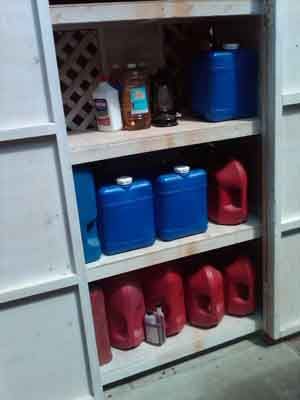I keep 40l of petrol/gasoline in my rig, pretty much all the time. I do try and use it on a regular basis, but sometimes it sits for a while. So, two questions:
- Should I fill them with ethanol-free fuel, to avoid deterioration and contamination with water?
- Should I add stabilizer?
Thanks all,
A.
- Should I fill them with ethanol-free fuel, to avoid deterioration and contamination with water?
- Should I add stabilizer?
Thanks all,
A.

